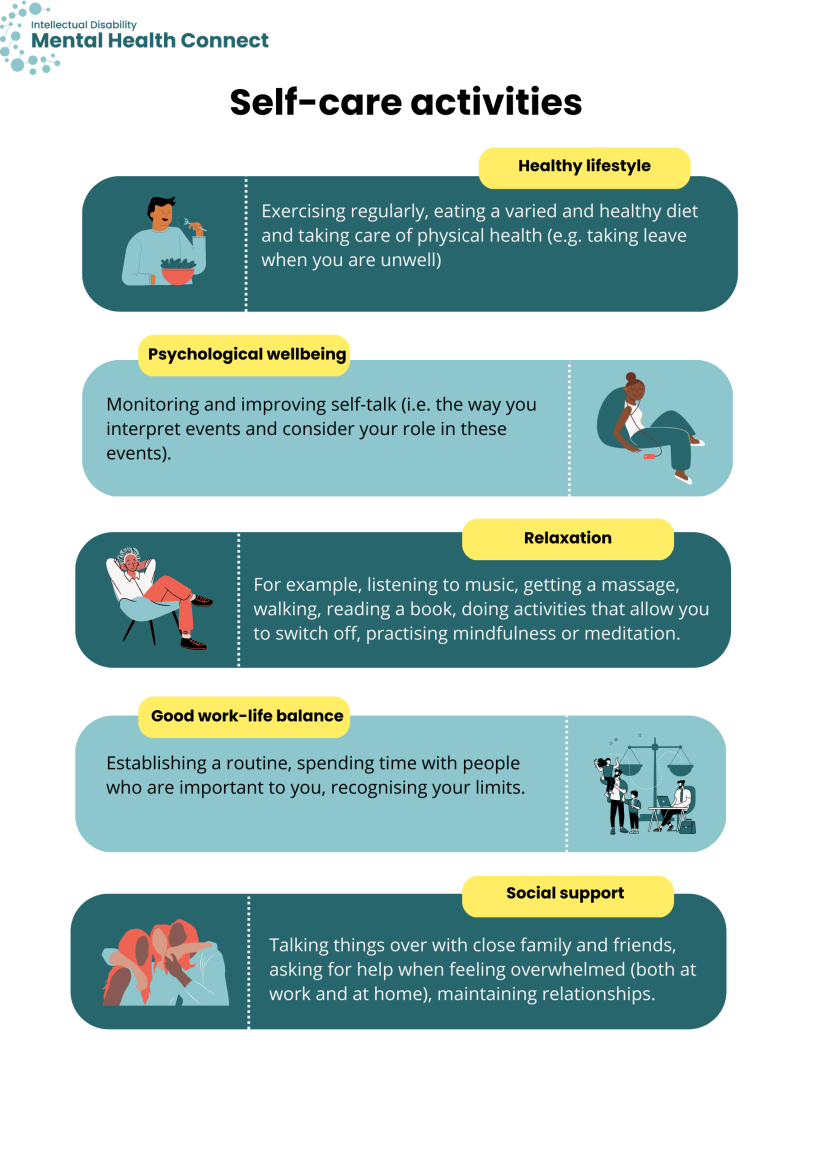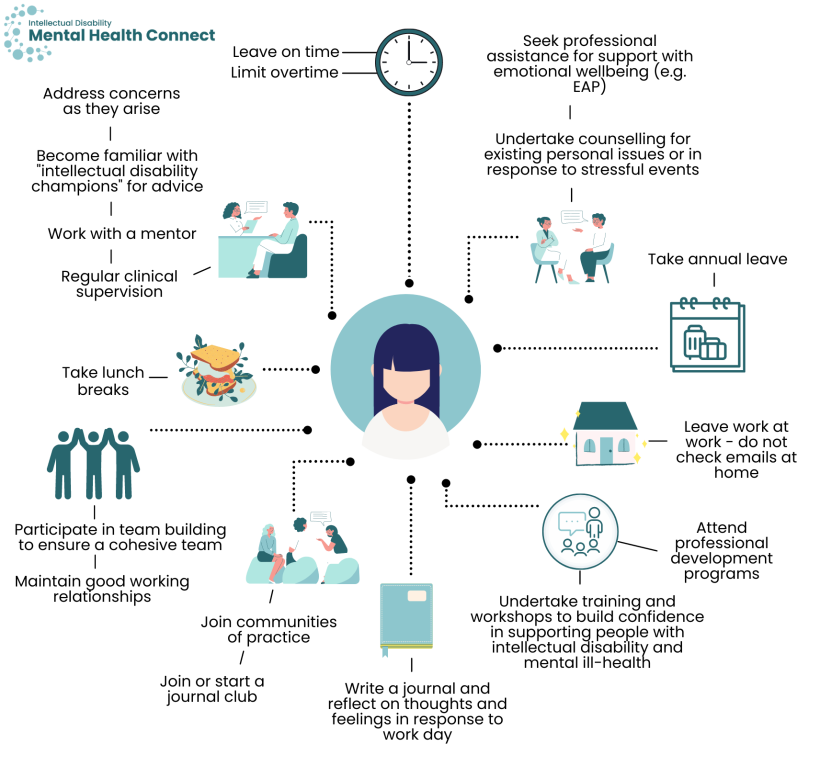Jump to a section below
Stress and burnout
Providing support to people with intellectual disability can be stressful, as it is a complex area in which to work. Professionals working in this area may be exposed to the trauma of others, including the person with intellectual disability and their carers and support networks. This can cause stress and burnout.
Stress and burnout can have negative effects on health and wellbeing, highlighting the importance of self-care. Signs of stress and burnout are provided in the additional background information below. Being in good health means you can be better equipped to provide good support to others. Service providers would not be as effective at helping others if they did not look after themselves first. Some of the impacts of stress and burnout on the workplace and on staff include:
- higher rates of staff sickness
- higher staff turnover
- reduced care standards (e.g. expressing negative emotions, withdrawing emotionally, being less responsive to the needs of the person with intellectual disability)
- the person receiving support feeling concerned or blamed
- not reaching your career potential
- tension between colleagues.
What is self-care?

Self-care means taking the time to look after your own wellbeing. It includes engaging in activities that help to prevent stress and manage stress in a healthy way when it does arise.
How self-care is practised will differ from person to person, depending on their individual needs and preferences. Some examples of self-care activities that you can engage in include:
- activities for a healthy lifestyle
- exercising regularly
- eating a varied and healthy diet
- taking care of physical health (e.g. taking leave when you are unwell)
- activities for psychological wellbeing
- monitoring and improving self-talk (i.e. the way you interpret events and consider your role in these events). You can find more information about self-talk on healthdirect and ReachOut
- completing self-care resources (see below for ideas)
- activities for a good work-life balance
- establishing a routine (e.g. regular times for meals, exercise and sleep, if possible)
- doing hobbies and activities for enjoyment
- spending time with people who are important to you
- recognising your limits
- activities for relaxation
- listening to music
- getting a massage
- walking
- reading a book
- doing activities that allow you to switch off
- practising mindfulness or meditation
- activities to utilise social support
- talking things over with close family and friends
- asking for help when feeling overwhelmed, both at work and at home
- maintaining relationships
You can find more examples of self-care activities here. In this video, people share what self-care means to them and the kinds of activities they do.
Self-care resources
- ReachOut has a resource that can help you to develop your self-care plan.
- Smiling Mind is a free mindfulness app that can help you practise mindfulness or meditation from your device. You could also use other mindfulness apps or techniques that you are aware of. This factsheet by The Black Dog Institute can provide you with more information about mindfulness.
- THIS WAY UP has a range of coping and resilience tools that may be helpful for coping with stress. They are also available in other languages.
- The Black Dog Institute has a range of self-care and self-help resources for health professionals. They also have digital apps like myCompass (developed for people with depression, anxiety or stress symptoms in the mild–moderate range) and HeadGear (designed with a male audience in mind but suitable for all adults).
Self-care at work
Managing stressors in the workplace is important because these stressors can contribute to burnout, which can impact the service being provided and negatively affect consumers and colleagues.
Some examples of ways you can engage in self-care at work include:

More self-care advice for support networks can be found in Looking after myself. Support workers and disability support managers may want to look at this page for more tips. Independence Australia also has some helpful information for support workers here.
For more information about self-care and supporting colleagues, 3DN’s Intellectual Disability Health Education has an online learning course that covers this topic. The course is available for a small fee.
